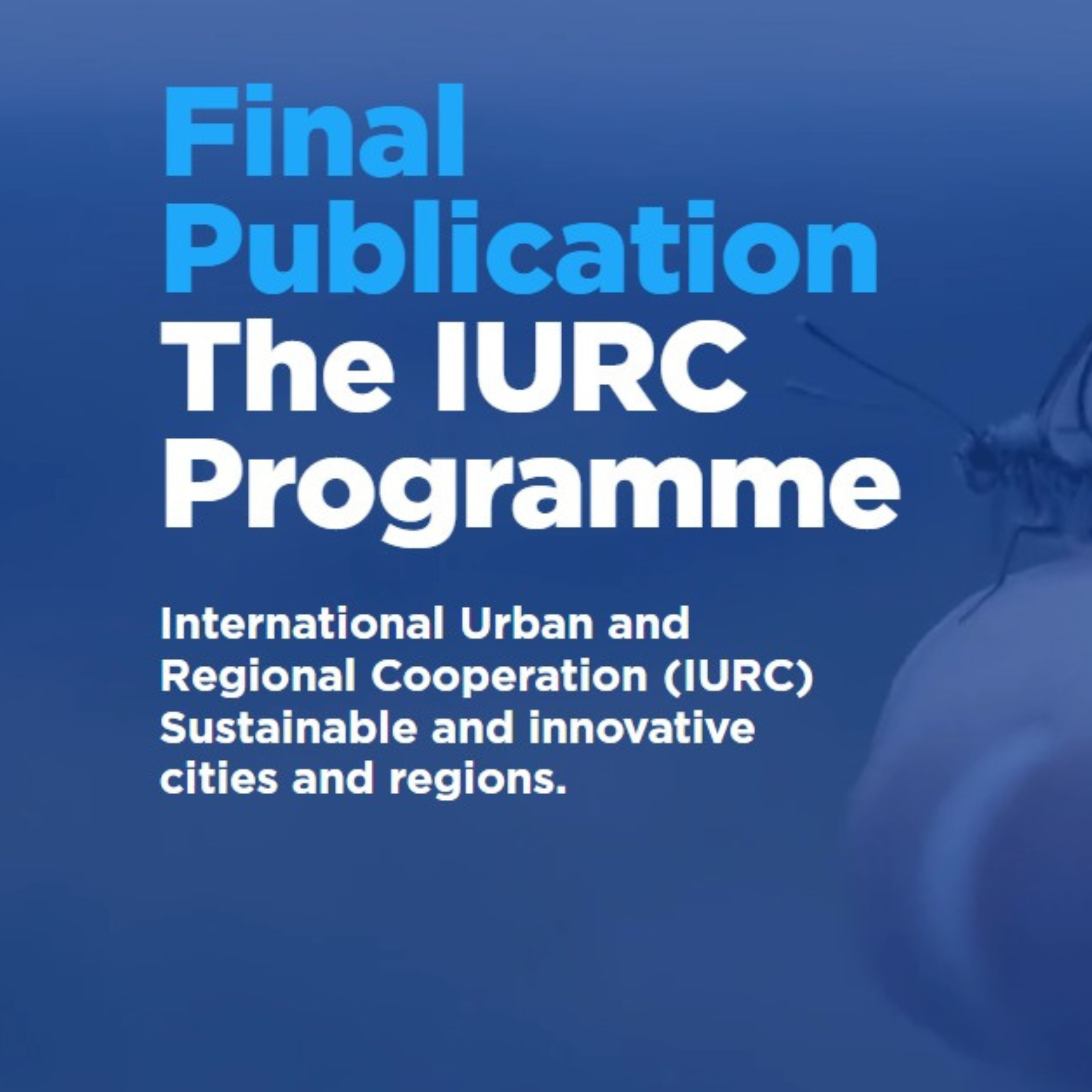As we delve into the final publication of the programme, we gain insights into the results of various pairings and clusters, all contributing to the shared objective of sustainable urban development.
The IURC structures and promotes cooperative efforts through three thematic areas, while also addressing the three main cross-cutting challenges of our time: the digital transition and smart cities, energy transition and climate change, and the post covid recovery. Indeed, whilst they pose the biggest obstacles to address critical urban matters, they offer guidance on how to reshape common efforts to tackle climate crisis in this decade. The first thematic area, “Ecological Transition and Green Deal”, is targeted at promoting a greener and more sustainable future, wherein clusters address challenges such as enhancing energy efficiency, implementing circular economy practices, revitalising urban spaces, promoting sustainable agriculture, and automating industrial processes. The second one, “Urban and Regional Renewal, and Social Cohesion”, takes aim at improving social fabrics and economic revitalisation. It encompasses urban planning, the rejuvenation of deprived neighbourhoods, sustainable transport systems, and preparing for a future shared by humans and smart machines. Clusters within the last theme, namely “Innovative, Sustainable, and Carbon-Neutral Ecosystems”, focus on incentivising knowledge and innovation ecosystems, sustainable tourism, cultural policy, and life sciences for improved well-being.
A notable case study within the publication and falling under the third thematic network involves the collaboration between EURADA member SIMORA Ltd – Development Agency of Sisak-Moslavina County (Croatia) and Chongqing (China). The partnership strategically tackled the challenge of digital transition by applying the concept of smart specialisation, managing to succeed in the endeavour to revitalise regions and improve competitiveness.
This collaborative effort between two regions, focused on a climate-friendly transformation towards economic development, stresses the importance of building strategic partnerships, as well as the role of supporting mechanisms in fostering sustainable innovation. This pairing relied on joint education initiatives, training programmes, and shared international events. Three main lessons should be highlighted from this collaboration: (1) Building strategic partnerships through cooperative working groups and consistent communication allows for needs being met and for effective mutual benefit, (2) Collaboration plays a pivotal role in nurturing talent and enhancing innovation, and (3) Support mechanisms, including incentives and funding processes, are key to encourage cooperation and to establish successful gaming enterprises.
As the IURC programme has come to an end, we would like to emphasise how honoured EURADA is to have been part of this collective dedication towards a more sustainable regional and urban future. The active participation of several EURADA members is also noteworthy, namely SIMORA Ltd – Development Agency of Sisak-Moslavina County(Croatia), ADRAL – Agência de Desenvolvimento Regional do Alentejo. S.A. (Portugal), RRA LUR – Regional Development Agency of the Ljubljana Urban Region (Slovenia), and ARRSA - Regional Development Agency in Bielsko-Biala (Poland). Now that we celebrate the completion of the second phase of the IURC programme, we must reflect on the challenges and implement the lessons learned, be inspired by the successes achieved, and uphold the spirit of collaboration that has defined this initiative. Through international cooperation, we can continue to create new possibilities for a more sustainable and resilient urban future.
